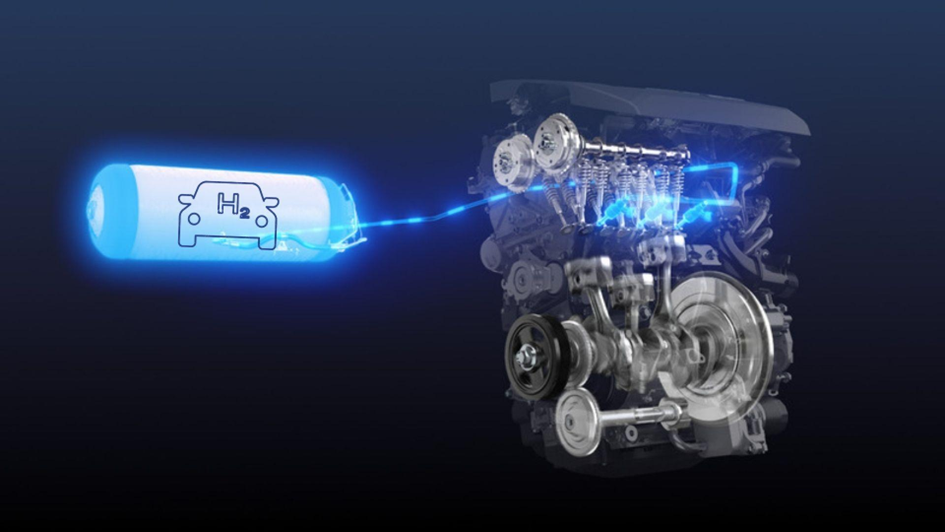The future of mobility is defined by sustainability. Hydrogen engines hold significant potential to replace conventional propulsion systems and protect the environment. But how realistic is this technology? And what can we do to support its advancement? In this article, you will learn more about the opportunities and challenges of hydrogen engines—and how each of us can contribute to the adoption of this technology.
What are hydrogen engines?
Hydrogen engines use hydrogen as a fuel to generate mechanical energy. Their main advantage is that, unlike traditional combustion engines that burn fossil fuels and emit harmful pollutants, hydrogen engines produce almost exclusively water vapor. This significantly reduces environmental impact.
Another benefit of hydrogen engines is their compatibility with existing vehicle architectures; they can be integrated without major modifications or additional safety measures, and existing workshop infrastructure can continue to support maintenance and repairs.
Hydrogen also has a high energy density, making it an ideal energy carrier for vehicles requiring extended range. In contrast to electric vehicles, which rely on lengthy charging times, hydrogen-powered vehicles can be refueled in just a few minutes—offering a clear advantage in terms of user convenience.

What does the future hold for hydrogen engines?
It is not possible to provide a definitive answer as to whether hydrogen engines represent the future of mobility. There are undoubtedly many advantages offered by this technology. Hydrogen as a propulsion system enables long ranges and rapid refueling, making it particularly suitable for long-distance transport and heavy-duty vehicles such as trucks and buses. Furthermore, hydrogen engines could in the future serve as a meaningful supplement—or even an alternative—to battery-powered vehicles.
However, we are still in the early stages of development. The technology must continue to be optimized in order to increase energy efficiency while simultaneously reducing the production costs of hydrogen. The ongoing expansion of the hydrogen infrastructure, particularly with regard to refueling stations, remains one of the greatest challenges. Yet, there are many promising advances and investments that are set to drive this technology forward in the coming years.
The question, therefore, is not whether hydrogen engines will be part of the future of mobility, but rather when this will become a reality. Achieving this will depend not only on research and development, but also on the support provided by policymakers, industry stakeholders, and consumers.
How can we contribute?
There are numerous ways in which we can all help advance and disseminate hydrogen technologies.
First and foremost, fostering research and development is essential. Companies and research institutions must continue to invest in improving the efficiency of hydrogen engines and in developing cost-effective methods for hydrogen production. Both private and public investments are necessary to support this effort.
Another key aspect is the expansion of infrastructure. For hydrogen vehicles to become part of everyday mobility, a dense network of hydrogen fueling stations is required. Investments must also be directed toward infrastructure for producing green hydrogen to ensure sustainable supply.
Finally, consumers also play a significant role. By educating ourselves about the benefits of hydrogen technologies and choosing environmentally friendly drive systems, we can make an active contribution. Strengthening public awareness of hydrogen as a clean and efficient alternative is critical to increasing political and economic momentum.

Conclusion
Hydrogen engines offer tremendous potential to make the future of mobility cleaner and more sustainable. However, overcoming the challenges to enable widespread adoption of this technology remains essential. In particular, improving engine efficiency, developing cost-effective hydrogen production, and expanding infrastructure must continue to be advanced.
Each of us can make a meaningful contribution by actively supporting the development of hydrogen technologies and fostering greater awareness of the importance of sustainability in mobility.
At tmax Group, we are committed to developing innovative solutions for the future of mobility. Our insulation systems support the efficient and safe operation of engines and exhaust aftertreatment systems—for both hydrogen engines and conventional combustion engines. The evolution of mobility is in our hands, and together, we can ensure that hydrogen becomes an integral part of this future.